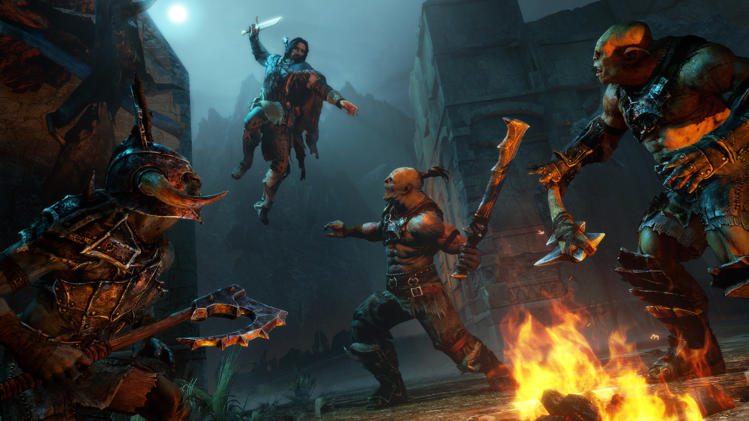Why do game publishers continue to insist on lying to gamers?
I have followed the gaming industry for long enough to understand that video game publishers tend not to like to tell the truth. In 2013, I wrote a blog post discussing consumer “trust” in so-called AAA publishers, arguing that it is up to the buyer to be aware of the rubbish that is on the market, to avoid such products both at present and in the future, and to amicably spread the word to the ignorant. However, there are some things that cannot be controlled, and publisher distrust has given rise to a new branch of consumer culture that has become increasingly prevalent in recent months.

One of the defining moments of gamer distrust in 2013.
Let me begin by telling you how this all started. Not too long ago, Ubisoft made some questionable comments about female characters in video games, essentially making excuses for something that can be best described as misdirected priorities. The issue came and went, but was followed relatively shortly thereafter by the Gamergate controversy – a topic I have admittedly done very little research on, and have avoided simply to circumvent the flames – which concerned ethics in video games journalism rather than their development. Suddenly, it was video games media, the ones who usually expose the controversy, that became the controversy itself.
Today, the gamer feels alone. No, not in that they live alone in their parents’ basement, as the traditional stereotype suggests. Rather, they are alone in that there is a lack of trust between gamers and those that they once depended on to deliver them the content they so desire. That is not to say such issues have never surfaced in the past, but in the age of modern social media, events and scandals like these are increasingly difficult to ignore, especially when many of them (in the case of Gamergate, for example) are fueled directly by social media itself.
All of this is background. The events stated above represent the current state of the industry. Today, I want to focus on something else.

Oh look, our good friend Assassin's Creed is back!
For the past several months, Ubisoft have been under fire (surprise!) over Assassin’s Creed Unity, specifically the fact that the game is locked at 30 frames per second. Senior producer Vincent Pontbriand said in an interview with VideoGamer, “we decided to lock them at the same specs to avoid all the debates and stuff,” implying that one version of the game (presumably the PS4 version) was downgraded in order to match the performance of the other (presumably the Xbox One version). Ubisoft later backtracked on Pontbriand’s comments, but later issued another statement that was equally as bizarre:
“30 was our goal, it feels more cinematic. 60 is really good for a shooter, action adventure not so much. It actually feels better for people when it’s at that 30 fps. It also lets us push the limits of everything to the maximum.”
Excuse me, but what? You are telling me that the consumer wants 30 frames per second over 60 frames per second because “it feels more cinematic?” Because that is the reason why YouTube recently added native 60 FPS support and films are moving away from the 30 FPS standard, right? And then they go on and claim, “collectively in the video game industry we’re dropping that [60 fps] standard.” Um, I am pretty sure we are not.

Even great games can be overshadowed (hehe) by controversy.
There is a clear dichotomy between what the consumer wants and what game publishers do. The obvious reason why Assassin’s Creed Unity does not run 60 frames per second is because Ubisoft simply could not make it happen. Yet, they hesitate to make tell the truth for one reason or another (likely to do with company "pride" is my guess), opting instead to make hapless excuses and hurting the company much more than it would have if they had simply admitted what they should have to begin with. They claim repeatedly that the consumer wants 30, that it is better in 30, that everyone else is going to 30 (arguably all incorrect, might I add), but they completely neglect what we really want – true transparency. Obviously, true transparency may never be fully achieved, but Ubisoft’s ludicrous claims make it impossible for the consumer to take anything the company says at face value.
There is a clear dichotomy between what the consumer wants and what game publishers do.
It is not just Ubisoft that gets itself into questionable practices. Before Middle Earth: Shadows of Mordor released, Warner Bros. sent out preview copies to popular “let’s players,” allowing them to stream and post videos about the game before anyone else – so long as these let’s players, among other things, “persuade viewers to purchase [the] game,” “promote positive sentiment about the game,” and, perhaps most interestingly, “must not show bugs and glitches that may exist.” This is a marketing concept known as co-branding, in which two companies or entities partner up in order to promote a product. The fact that nobody knew about this branding deal until one YouTube celebrity decided to break the NDA should make consumers feel at least a little big shady, which is a shame because Shadows of Mordor, which is generally considered to be a very good game, now has this unnecessary controversy overshadowing its success.

I love Mass Effect 3, but I almost didn't play it due to EA.
Shadows of Mordor brings up an interesting dilemma then that a lot of gamers today face. It is easy to go up at arms against Ubisoft or EA for their actions, but what can we do about it? Many gamers have opted to boycott certain publishers; I admit that I have stopped purchasing EA games simply because I refuse to use or download Origin. Unfortunately, my decision to do so have raised a very interesting question that I have much trouble answering: who am I hurting the most by doing so? The publisher could probably care less, considering how much money they make nowadays. The developers may suffer a bit more, only because their success is directly tied to consumer sales, and they do depend on funding from the publisher based off of that success. It seems to me though that it is I, the consumer, who suffers the most by denying myself the games I want to play, solely because there is a clear dichotomy between what the consumer wants and what game publishers do.
You might leave today wondering what life lessons I have to offer you after all this, but in truth I do not have any. Things like these happen out of our control, and simply being “aware” is not enough anymore. Taking action results in nothing but our own increasing dissatisfaction, only fueled by the questionable motives of AAA publishers. That does not mean, however, that we should stop enjoying the games themselves. You may hate game publishers all you want, but despite all of that, they still give us the one thing we treasure most, and that is great games – regardless of how many frames per second they end up running.

Okay, maybe most of the time...
So tell me, MyIGN. Do you take issue with the lack of transparency between game publishers and consumers? Is there a way to prevent this from happening in the future? Discuss in the comments below!
